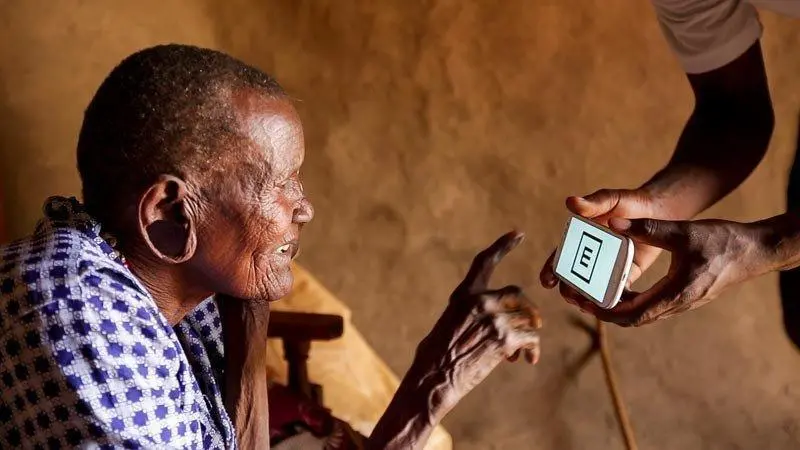Healthcare professionals, scientists and pharmaceutical companies’ understanding of the daily impact of disease and treatment on a person’s life are not always as good as they could be. Historically the focus has been on clinical outcomes, with an assumption that this naturally aligns with the outcomes from a patient’s perspective. Unfortunately, they are not always aligned at all.
I believe mobile health (mHealth) can support the practical application of patient outcomes in three fundamental ways.
Putting Patients at the Centre of Care
Patients should expect healthcare services built around their own needs. mHealth has the capacity to support patients in the context of their lives, for example: reminding asthma patients to keep their reliever medicine with them when air quality is poor, nudging diabetes patients to remember their nutritional plan when in a supermarket or advising patients with pulmonary arterial hypertension that their average six-minute walking distance has decreased, prompting them to speak to their care team.
The development of mHealth sensor technology means that patients’ capacity to track their biometrics such as heart rate and blood pressure is already mainstream, even using biometric markers to track emotional responses and predict that events such as an epileptic seizure are just around the corner. The impact of chronic disease on Quality of life (QoL) can be better measured with QoL instruments at the core of mHealth programmes, tracking the emotional impact of a patient’s disease and treatment. This means that real-time personalised support can be offered on the basis of that measure, either with contextual content or services such as mindfulness and CBT. The ultimate outcome is that rather than imposing outcome measures on patients, patients should expect to measure what is important to them.
Another key component of improved patient outcomes is the effective dialogue between the patient and HCP, moving from a paternal relationship to partnership. We know that patients who are active participants in managing their health have better outcomes than patients who are passive recipients of care. Enabling patients to track and record their own measures, and build their appointment care plan around the outcomes that are important to them are key to improving patient outcomes through the better provision of care.
Patient Reported Outcomes for the 21st Century
Patient reported outcome measures (PROMs) are reports
of the status of a patient’s health coming directly from the patient, without interpretation of the patient’s response by a clinician or anyone else. PROMs are designed to assess the quality of care delivered to patients from the patient perspective and are now an accepted measure of treatment success, with examples in the US such as The American Joint Replacement Registry and in the UK with all providers of care, funded by the NHS, required to provide PROMs
in four surgical procedures. The FDA has issued formal guidance to industry on PROMs, and the EMA has produced a reflection paper on HRQoL with the consensus that regulatory submissions for new drugs should provide PROM data to support claims.
mHealth technology gives us the capacity to capture PROMs on a larger scale and in a truly real-world setting. Capturing outcomes from the patient’s perspective alongside behavioural and biometric data can give a more holistic understanding of the patient experience. Although there are many scientific and regulatory implications, the convergence of patient support focused on improving clinical and patient outcomes, with
the need to capture PROMs in
the real world, puts mHealth
at the centre of a possible revolution over the next decade.
mHealth also enables us to scale real-world evidence studies at a much faster pace, reaching thousands of patients when we might in the past only been able to reach a few hundred. This could have an impact on clinical study endpoints, for example patient reports may contradict objective measures. In a recent study in rheumatoid arthritis, patients saw pain as the key measure of treatment success, confounding the objective ‘clinical evidence’ of improvement.
Integrating Patient Outcomes
Pharma has an opportunity to truly place patients at the heart
of everything it does. Integrating patient outcomes into all aspects of pharma patient engagement will be fundamental. Pharma has embraced PROMs but their use and application have often been driven from their agenda and not from the patient’s perspective. The power and scale of mHealth gives us an opportunity to humanise everything from research through to patient engagement and support. This may be ironic, but I believe tech can put the humanity back into patient care.



Leave your comments
Post comment as a guest